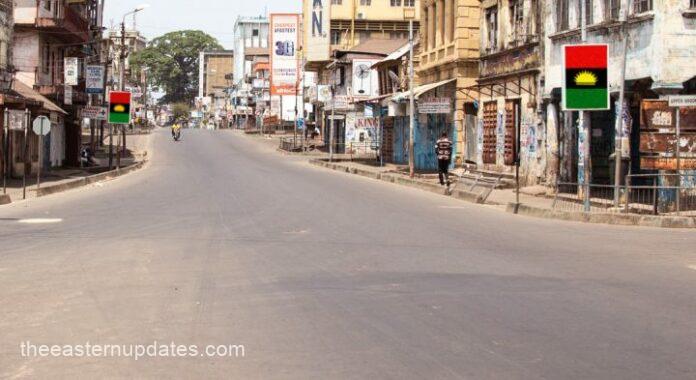|
Listen to article
|
A social analytical group, Nextier SPD has shared its views on the crisis plaguing the South East and concluded that the Sit-at-Home phenomenon which has jeopardised the economic activities of the residents could be brought to an end if governments of the region work through a context of collective engagement.
The Group in its latest research into the crisis bedeviling the region pointed out such synergy could come through the South East Development Commission (SEDC) or South East Governors Forum by faithfully implementing development agreements made in any of their fora.
In the research report spearheaded by Dr. Ben Nwosu, an Associate Consultant at Nextier, a Senior Research Fellow at the Institute for Development Studies, University of Nigeria, Enugu Campus, and Dr. Ndu Nwokolo, a Partner at Nextier and an Honorary Fellow at the School of Government at the University of Birmingham, UK which was sent to The Eastern Updates on Monday, suggested that there was an urgent need to remake the security architecture of the states in the region to integrate community/citizen input and perspectives.
When discussing the origins of the sit-at-home problem, Nextier noted that it had been more than two years since separatist violence erupted in a boiling cauldron in the South East of Nigeria, with energetic reactions mostly coming from the state.
Read Also: Consider De-proscribing IPOB, HURIWA Urges South Eastern Govs
Nextier further down memory lane pointing out that the separatist agitation resumed in 1999, beginning with the Movement for the Actualisation of the Sovereign State of Biafra (MASSOB) but gained unusual tempo in 2015 when another group, the Indigenous People of Biafra (IPOB) led by Mazi Nnamdi Kanu became the leading organisation agitating for the state of Biafra.
Both Drs Nwosu and Nwoko opined that the arrest of Mr Kanu, his trial, escape to exile and capture became a defining moment for South Eastern Nigeria.
It marked the rise of unusual violence, the high point of which was coordinated armed attacks on security agencies, including the army, police, Immigration service, prisons and every institution representing the state.
As a way of wriggling out of the current situation, Nextier noted that consideration must be given to embarking on cost-effective regional projects, factoring in the geographical proximity of the South East states.
It equally suggested that the governments of the South East region should prioritise improving state-society relations through development conversations that involve town unions as the best context for organising in the South East.
‘Governments of the South East states should embark on providing critical infrastructure as best as the resources available to them can support.
‘The South East has been allowed to remain unstable and uncoordinated for too long. This lack of coordination and cohesion creates the entry point for faceless persons to emerge from anywhere to assume authority and issue orders about what is to be done in the South East.
“Governments only give a weak reaction to impostors who fill the vacuum that poor policy and governance have left.’
The reactive mode of the state governments merely scratches the problems of insecurity without resolving them.
This reactive behaviour explains why people fearfully comply with orders issued from faraway Europe by someone who has no authority in Nigeria,” both researchers submitted in their report.
























